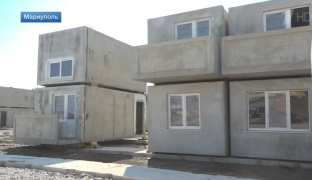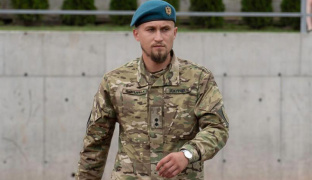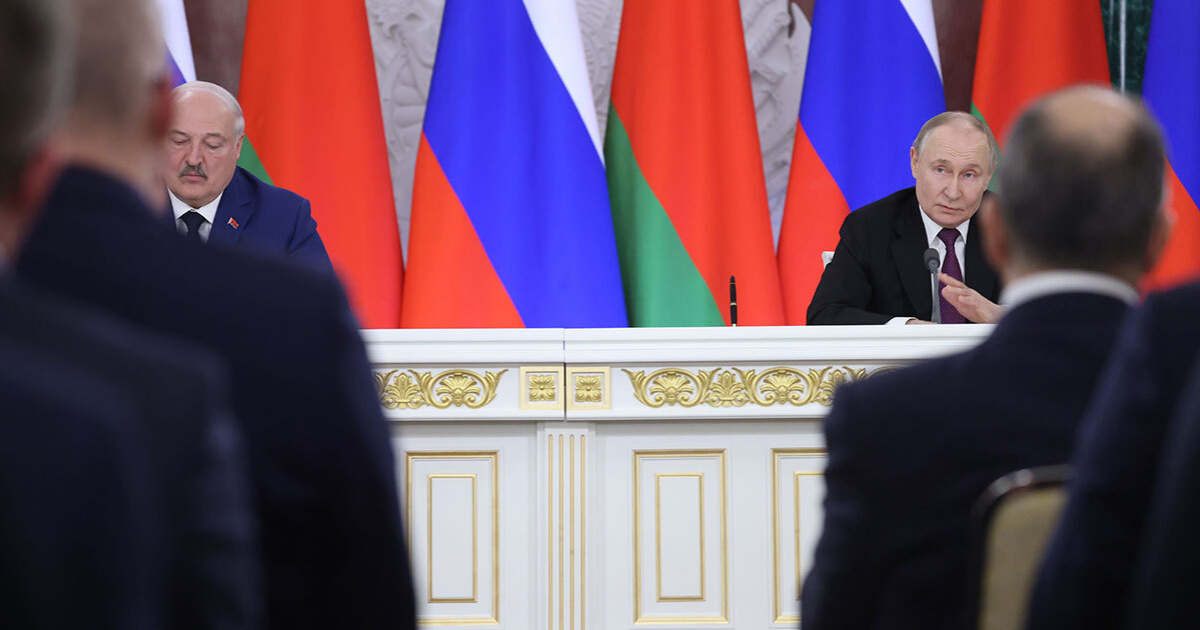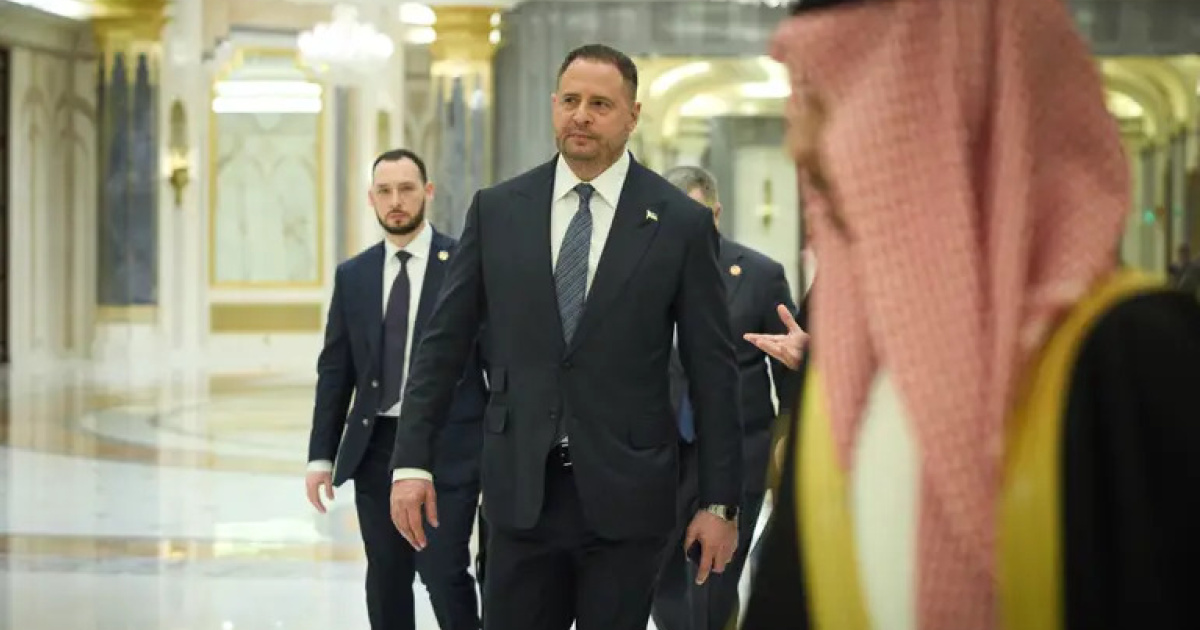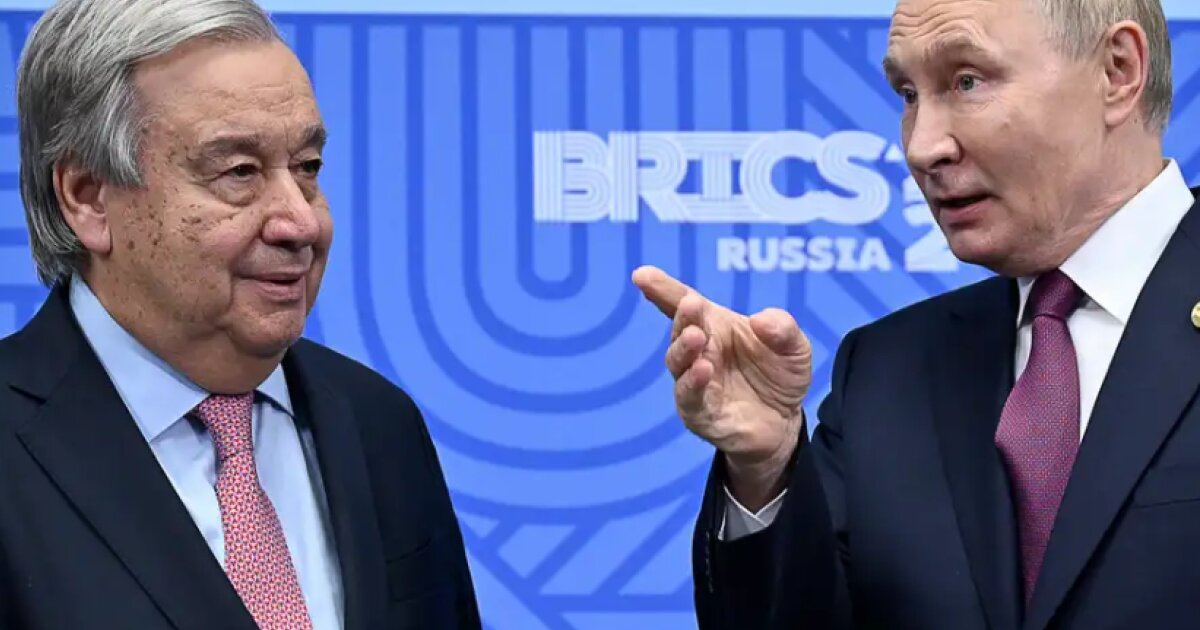
Putin, who unleashed the bloodiest war since World War II against Ukraine, frequently claims that the aggressor state is destroying a sovereign nation in full accordance with the UN Charter. Most recently, he brandished the United Nations flag at the beginning of November during a session of the Valdai Discussion Club.
At the event, he recounted how UN Secretary-General António Guterres allegedly criticized him at the BRICS summit in Kazan, accusing russia of violating the UN Charter by initiating the so-called "special military operation".
“He (Guterres – OstroV) supports those who say that we violated the norms and principles of international law, the UN Charter, that we started hostilities in Ukraine...”, - putin lamented.
In his defense, he repeated the same old narrative, claiming that "the people living in Crimea and those residing in southeastern Ukraine, who disagreed with the coup d'état, have the right to self-determination".
“Is that so?”, - he rhetorically asked himself, promptly answering, “Yes, it is!”
Buoyed by his own reasoning, he continued: “If that’s the case, then we had the right to sign appropriate interstate agreements with these new states, didn’t we? Well, of course, we did. Did we do it? Yes, we did!”
Then, according to putin’s logic, the "new states" requested military aid. "We had the capability and were obligated to provide it. Which we did, attempting to stop the hostilities initiated by the Kyiv regime in 2014. We did not initiate any intervention, any aggression; we are trying to end it", - the russian dictator concluded, in a statement worthy of George Orwell’s envy.
"Where is the error in this chain? What did I say wrong? Where did we violate international law and the UN Charter?", - putin allegedly asked the head of the UN. What António Guterres, who visited the war criminal at the BRICS summit in Kazan, actually responded remains unclear. According to the kremlin's master, "The Secretary-General listened to all of this, nodded silently, and said: 'Well, yes, fine, but you still attacked… There’s no rational answer, is there?"
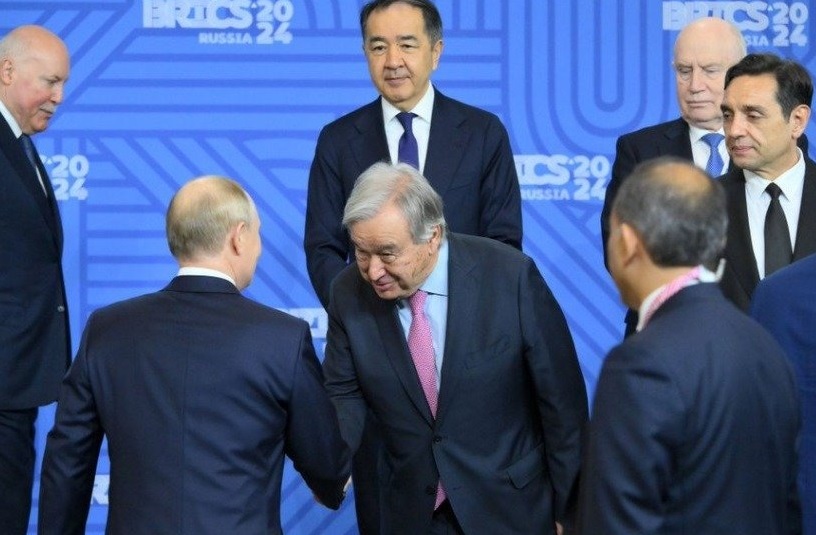
So, the main argument in favor of the "peaceful stance of russia" is the implementation by the so-called "Donbas republics" of the right of peoples to self-determination as enshrined in the UN Charter. Indeed, the UN Charter proclaims this right as fundamental in the modern world. However, it specifically refers to peoples, not residents of specific regions of a given country. For example, international law does not recognize terms such as "the people of Donbas", "the people of the Zaporizhzhia oblast", or "the people of the Kherson oblast".
The principle of the right to self-determination in the UN Charter gained recognition during the mid-20th century with the collapse of the colonial system and the granting of independence to colonial countries and peoples. This was detailed in the 1960 Declaration on the Granting of Independence to Colonial Countries and Peoples. Finally, the UN Declaration adopted on September 13, 2007, clearly stipulates that the right of peoples to self-determination pertains specifically to the indigenous peoples of a given country. The multinational, predominantly non-indigenous population of Donbas and the southern oblasts of Ukraine cannot, by default, be considered such.
Especially since moscow always justifies its seizure of Ukrainian territories by claiming to protect the "russians". That is, Ukrainian citizens of a specific "russian" nationality. But even according to the 2001 census, only 38% of the population in Donetsk oblast identified as ethnically russian. In the Luhansk oblast, the figure was 39%. Naturally, over 20 years of Ukraine's independence, these numbers decreased further through natural, migratory, and psychological factors (for example, children of "russian" parents born and raised in Ukraine identified as Ukrainians).
Thus, there can be no talk of a "people" attempting to "self-determine" in Donbas. Even more so when discussing the "new states" of the Zaporizhzhia and Kherson oblasts. Here, one doesn’t even need to analyze the ethnic composition. These "states" were created after russia’s occupation of these territories and were essentially established by the occupier itself—russia…
And another point. Let us hypothetically assume that the UN Charter does indeed permit "the people of Donetsk Hladkivka" or "Luhansk Verhunka" to self-determine. Even in this case, the "Russian spring" of 2014 cannot be considered a legitimate way to exercise this right. "All peoples have the right to freely determine their political status and pursue their economic, social, and cultural development without external interference", - states the UN Declaration on Principles of International Law from October 24, 1970. It is evident that russia-funded rallies in Donbas cities, the storming of administrative buildings by paid agents, and the organized transport of individuals from neighboring russian oblasts cannot be regarded as an absence of external interference. One must not forget that, for example, the first leader of the so-called "DNR" was the russian political consultant Alexander Borodai, sent directly from moscow.
Moreover, the capture of Ukrainian Sloviansk in April 2014 by the saboteur and terrorist Igor Girkin entirely dismantles putin’s second argument: that Ukraine attacked the "DNR" and "LNR", which had supposedly separated from it, and that eight years later he began defending them.
Before Girkin’s raid, the Ukrainian government was tolerant—perhaps overly so—toward the so-called "russian spring". The anti-terrorist operation was a direct response to the armed invasion of Ukraine by a kremlin proxy.
Girkin himself admits that without his squad, which crossed over from russia armed with the latest russian weapons, the bloody war in Ukraine would not have begun. "I was the one who pulled the trigger for the war. If our squad hadn’t crossed the border, everything would have ended like it did in Kharkiv or Odesa. There would have been a few dozen killed, burned, or arrested, and that would have been it. But the war that continues to this day was essentially set in motion by our squad", - the saboteur proudly stated in an interview with the far-right newspaper “Zavtra”.
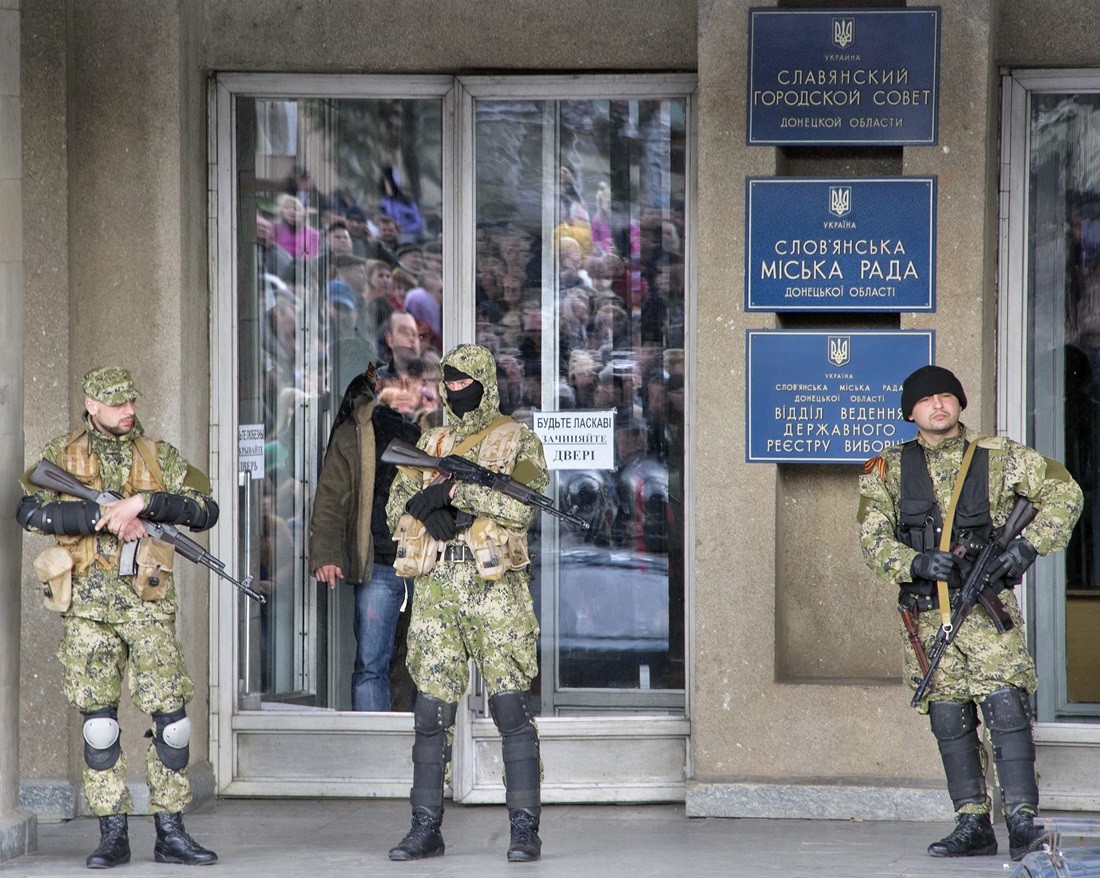
Thus, it is evident that Ukraine did not attack anyone—it was attacked. Putin's regular appeals to Article 51 of the UN Charter, which stipulates that UN members have the right to use armed force to defend their state, are meaningless from the perspective of international law.
It is worth noting that the UN Charter speaks of the inalienable right "to individual or collective self-defense if an armed attack occurs against a Member of the Organization". There is not a single mention of hastily acquired allies.
Moreover, this article, even when discussing the defense of allies, cannot in principle be activated in relation to the "Donbas republics". A UN member has the right to defend internationally recognized sovereign states that are also part of the United Nations. Neither the "DNR" nor the "LNR" meets this criterion. The "referendums" and "elections" held there are not taken seriously by anyone in the world.
Thus, the only two cards putin attempted to play from the UN Charter deck turned out to be marked.
By Yurii Bovkh, OstroV
